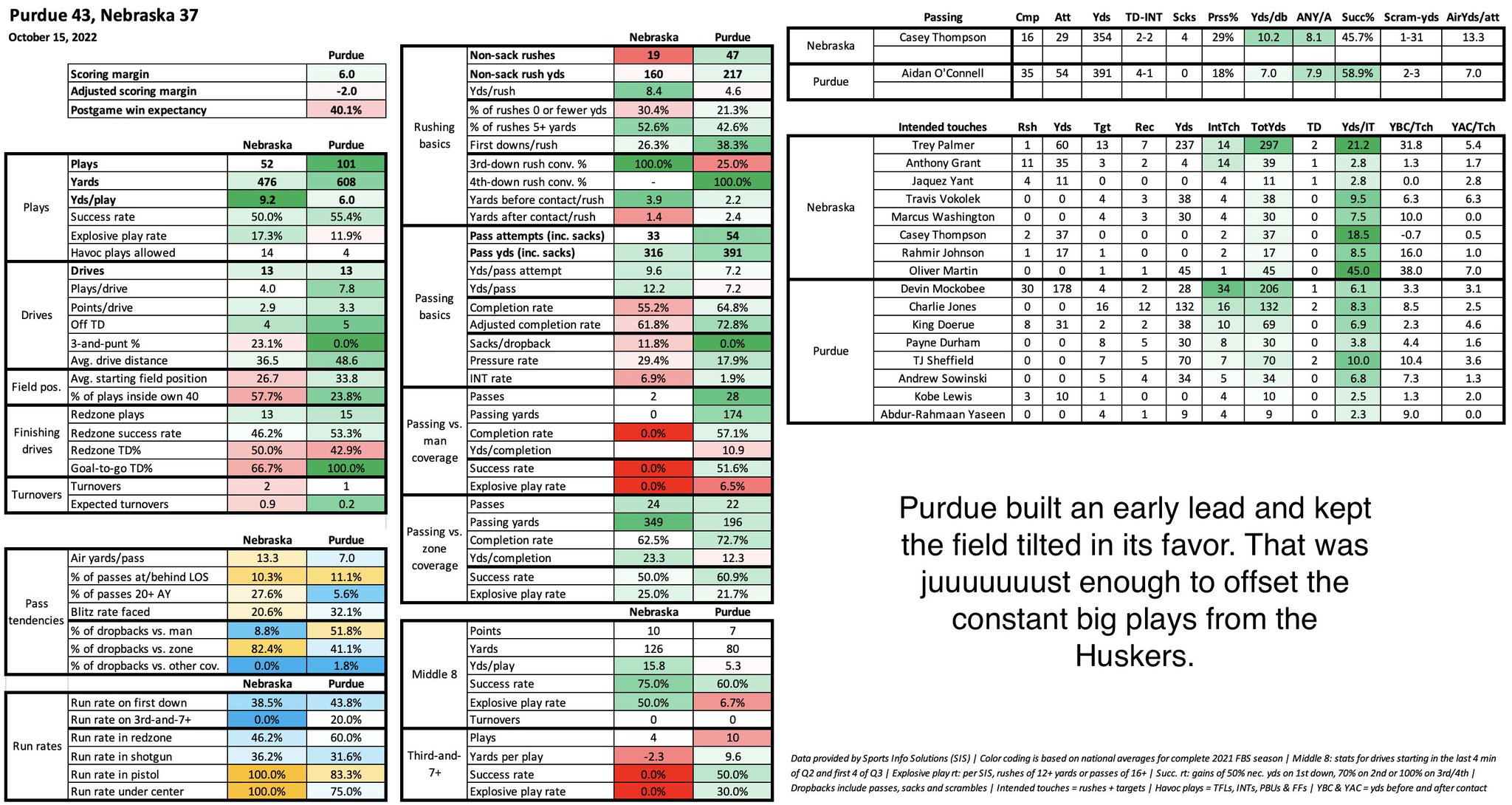84HuskerLaw
All-Conference
Thanks, Maverick! The numbers show about as I expected. Those correlations would probably be similarly indicative of winning probability as well.
The pass yards is actually a bit lower than even I would have guessed. It may somewhat confirm my belief that rush yards are more valuable than passing yards in predicting wins too.
They all fit together imo. Teams tend to lose without a run game, despite passing well. Teams with a nice combination of both and teams that are run heavy tend to win more often.
Teams that control time of possession, get lots of first downs with runs and passes tend to win more.
Big play passing teams tend to be inconsistent and games with stats like the Purdue game are rare and very hard to duplicate thru the seasons.
The best running team wins more often than the best passing team. Pass plays are simply more difficult to execute consistently. Risk vs reward. Deep pass plays tend to be the most difficult to execute.
Ideally, imo, the play caller wants to keep the defense guessing as much as possible. Predictability is a defender’s edge. Of course, if the play caller can reliably predict his offense can successfully execute a variety of his play selection, it’s easy to call plays. But, as in Whipple’s current predicament, he can’t count on any of his plays (run or pass) being successful, it’s extremely hard to call plays successfully.
Defenses can predict Neb wont run the ball very well so the pass can be the primary focus. When they defend the pass well, the result is more sacks, incompletions, ints, etc.
3 & outs lead to short possessions and tired defenses. And incomplete passes involve much less tackling by the defenses = less fatigue.
The pass yards is actually a bit lower than even I would have guessed. It may somewhat confirm my belief that rush yards are more valuable than passing yards in predicting wins too.
They all fit together imo. Teams tend to lose without a run game, despite passing well. Teams with a nice combination of both and teams that are run heavy tend to win more often.
Teams that control time of possession, get lots of first downs with runs and passes tend to win more.
Big play passing teams tend to be inconsistent and games with stats like the Purdue game are rare and very hard to duplicate thru the seasons.
The best running team wins more often than the best passing team. Pass plays are simply more difficult to execute consistently. Risk vs reward. Deep pass plays tend to be the most difficult to execute.
Ideally, imo, the play caller wants to keep the defense guessing as much as possible. Predictability is a defender’s edge. Of course, if the play caller can reliably predict his offense can successfully execute a variety of his play selection, it’s easy to call plays. But, as in Whipple’s current predicament, he can’t count on any of his plays (run or pass) being successful, it’s extremely hard to call plays successfully.
Defenses can predict Neb wont run the ball very well so the pass can be the primary focus. When they defend the pass well, the result is more sacks, incompletions, ints, etc.
3 & outs lead to short possessions and tired defenses. And incomplete passes involve much less tackling by the defenses = less fatigue.

